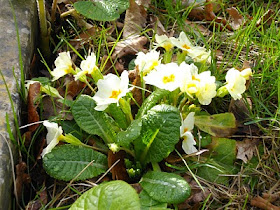.
My garden is close to a cemetery, and as such I get a decent variety of birds. However there are some notable absentees, including Greenficnes and Goldfinches. Everyone I know who has put up a niger* seed feeders has them by the bucketload. I have seen a flock of up to 40 in a tree in the cemetery, but they just aren't interested in the niger, sunflower seeds or millet. Anyway, whilst listening to the cricket this afternoon I was watching a Coal Tit and a Nuthatch in the small tree in the garden when I noticed a bird on the niger feeder. A male Siskin! Joined soon after by a female, which alternated between the sunflower seeds and the niger. I see Siskins almost every time I go birding over the winter, but there really is nothing like seeing them in your own back garden.
* niger, nijer, nyger, nyjer. Take your pick, its the little black seeds that Goldfinches eat in other peoples gardens.





